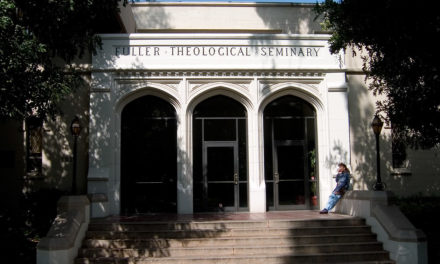Last week, the U.S. Senate voted to end debate on H.R. 8404, the deceptively-titled “Respect for Marriage Act” by a vote of 62 to 37. The bill repeals provisions in federal law that stipulate that marriage is a union between one man and one woman.
In short, the bill purports to define for purposes of federal law that marriage is as follows: a sex-nonspecific contract entered into by two consenting adults.
Ok – but what really is marriage?
In the Christian tradition, marriage is the lifelong union of one man and one woman that has been created, defined, and established by God, to which he has inherently tied the benefits of offspring and conjugal fidelity.
Marriage is not something that human beings can change, repurpose, or redefine at will, because it is not an institution that has been created by man.
This perspective is woven throughout Scripture.
In the second chapter of Genesis, God creates Adam and Eve because “it is not good that the man should be alone” (Genesis 2:18 ESV).
“Therefore a man shall leave his father and his mother and hold fast to his wife, and they shall become one flesh” (Genesis 2:24 ESV, emphasis added).
For millennia, both Jews and Christians have seen this passage as describing the beginning of and basis for the institution of marriage – existing from the very beginning of creation.
Notice, in this section of Scripture, who has created marriage.
Not man, but God.
In the nineteenth chapter of the Gospel of Matthew, Jesus Christ teaches about divorce. Jesus is asked by the Pharisees whether it is “lawful to divorce one’s wife for any cause?”
Jesus quotes from the above passage in Genesis 2, before adding, “So they are no longer two but one flesh. What therefore God has joined together, let not man separate” (Matthew 19:6, emphasis added).
Again, notice here who has joined man and woman together.
Not man, but God.
Marriage is not established by man; therefore, marriage cannot be redefined by man.
On December 21, 1930, Pope Pius XI published the encyclical “Casti Connubii,” which is Latin for “Chaste Wedlock.”
The encyclical served as the Catholic response to the Lambeth Conference of 1930, in which the Anglican Communion became the first Christian denomination to approve of the use of artificial birth control in limited circumstances within marriage.
The encyclical reflects on marriage as a God-ordained institution, and states the following:
The sacred partnership of true marriage is constituted both by the will of God and the will of man. From God comes the very institution of marriage, the ends for which it was instituted, the laws that govern it, the blessings that flow from it.
It goes on to state that “amongst the blessings of marriage, the child holds the first place.”
That’s because, in part, it is through wedlock that future citizens of the Kingdom of God are born.
How great a gift of divine goodness and how remarkable a fruit of marriage are children born by the omnipotent power of God through the cooperation of those bound in wedlock.
This is why relationships formed by same-sex couples can never be marriage. The procreation of children is an essential element, or fruit, of marriage. Same-sex relationships can never create children; they are inherently sterile. Consequently, they lack one of the constitutive purposes for which marriages are formed.
Some proponents of same-sex marriage will argue that this principle doesn’t hold water, pointing to sterile heterosexual couples who can’t have children as a counterexample. If some heterosexual marriages are sterile, then why can’t sterile homosexual couples be married, they argue.
But this thinking if flawed. Within marriage – the lifelong union of one man and one woman – procreation is always possible, in principle. But in principle, procreation is never possible for homosexual couples.
The existence of exceptions to procreative heterosexual marriages does not undermine the definition of marriage, just like the existence of an individual with 12 fingers and 12 toes does not undermine the normative principle that human beings exist with 10 fingers and 10 toes.
No matter how quickly opinions change, or how many laws are passed, marriage cannot be altered by any action man takes. Marriage is and always will be a union of one man and one woman, by which the two consenting parties are bound together by God for life.
Even though our human law may change, it will never supplant the divine law as written by the ultimate lawgiver.
A final vote on the “Respect for Marriage Act” is expected after Thanksgiving. The U.S. Senate voted on a version of the bill with an added amendment to ostensibly protect religious freedom – though it is woefully insufficient. Because of this, the bill will have to be voted upon again by the U.S. House of Representatives before heading to President Biden’s desk for approval.
Please pray that God will defend, provide for and strengthen our nation’s marriages and families.
If you or someone you know is struggling, and you don’t know where to turn, Focus on the Family is here to help.
Focus offers a one-time counseling consultation with a licensed or pastoral counselor free of charge thanks to generous donor support. If you would like to request a consultation with Focus’ Counseling Department, call 1-855-771-HELP (4357) weekdays from 6:00 AM to 8:00 PM (Mountain Time) or complete our Counseling Consultation Request Form.
Related articles and resources:
Counseling Consultation & Referrals
Hope Restored Marriage Intensives – A Ministry of Focus on the Family
Photo from Shutterstock.






